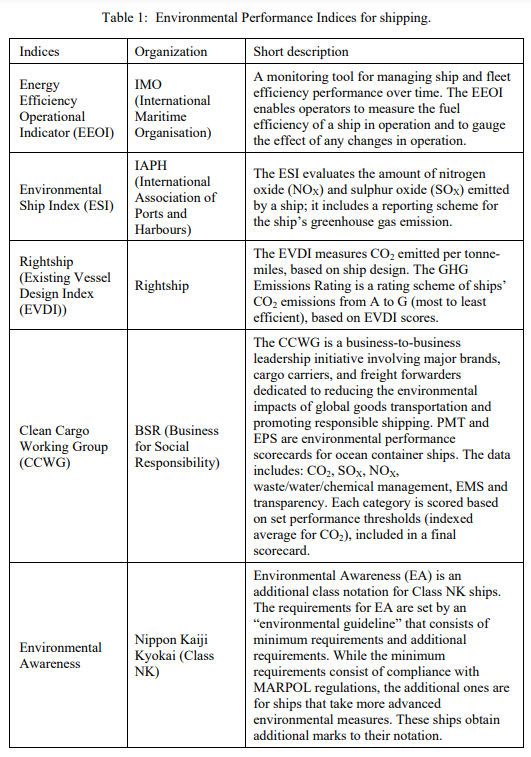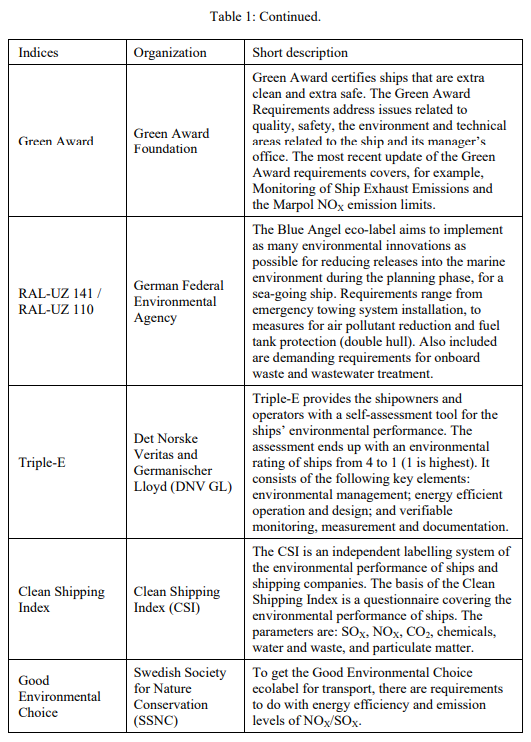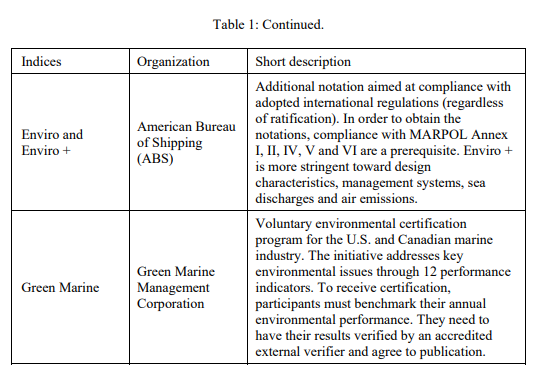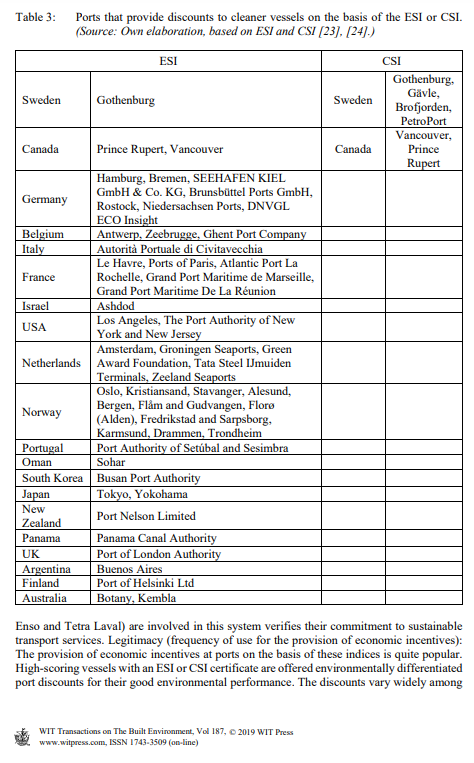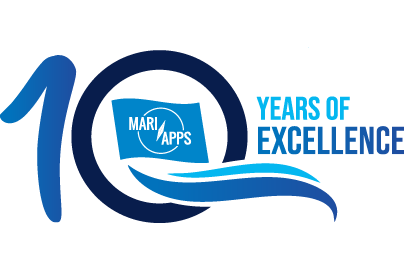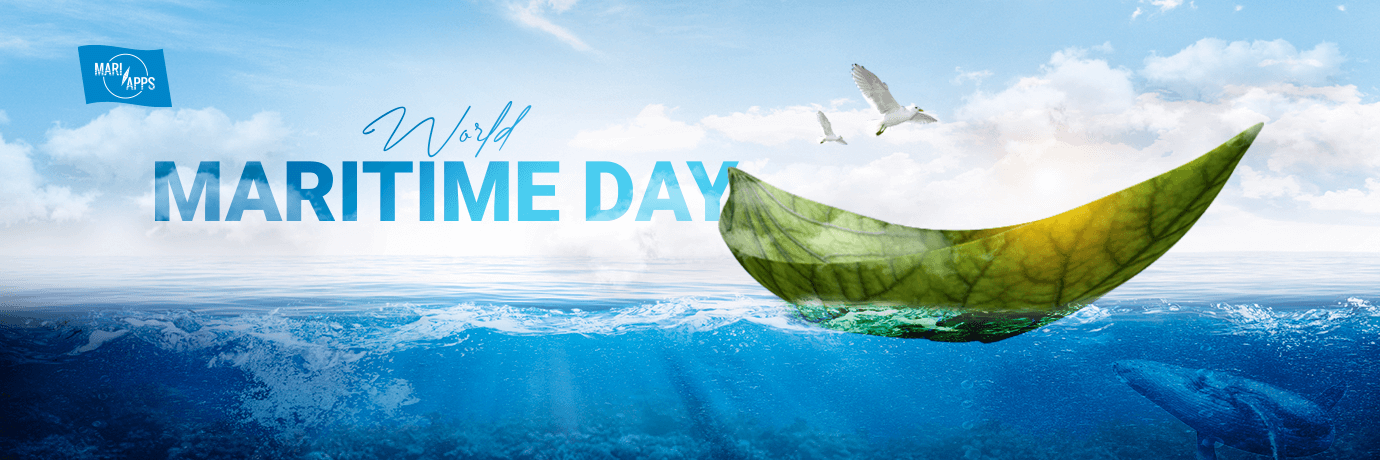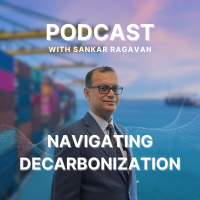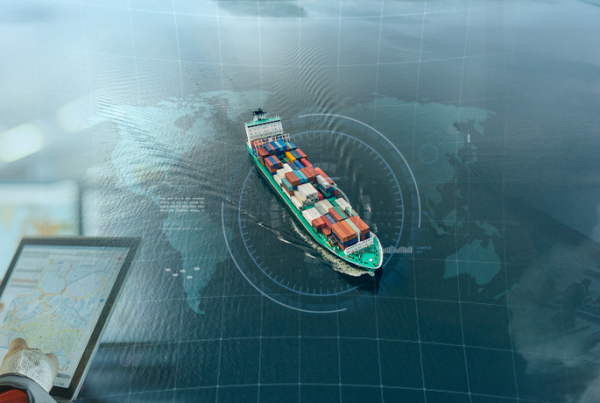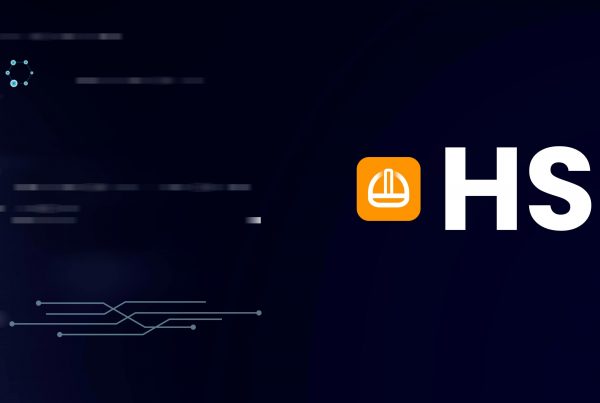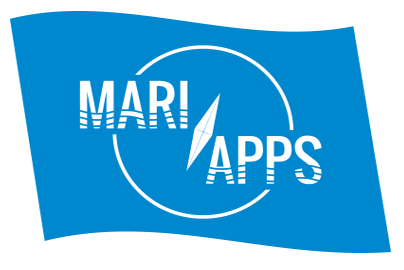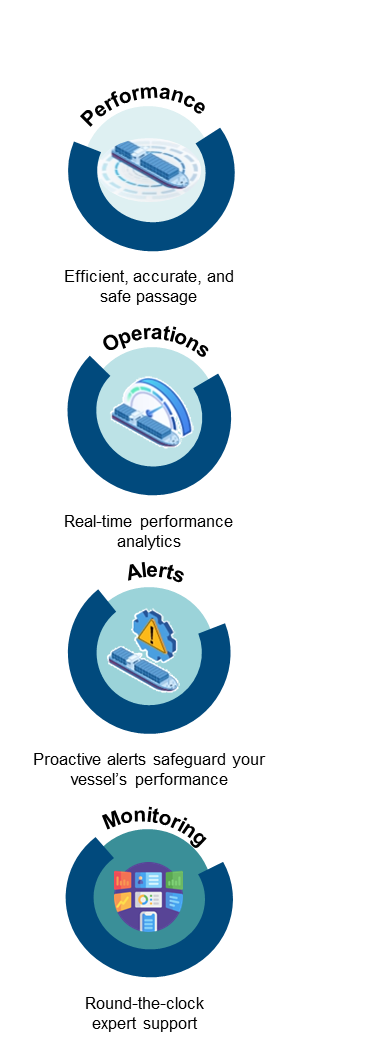

Digitalization is essential to support our sustainability objectives. To support forward-thinking shipowners and operators achieve their goals for digitalization, decarbonization, and broader sustainability, smartOps was developed. Using cutting-edge technology, smartOps has the potential to optimize fuel consumption while increasing safety.
It utilizes data reported through a state-of-the-art vessel application, telemetry data recorded directly from sensors, as well as position and weather data. Vessels are benchmarked against their own tailored digital twin, with results
Delivered in a clear and user-friendly manner. It offers tools to manage decarbonization, while enabling cost and reliability efficiencies through predictive and proactive insights – transparently, ashore, and onboard.
This maritime digital solution gives insight into the environmental performance of a single asset or fleet through advanced data analysis. The maritime industry will continue to be driven by technological and digital innovation. We believe that digitalization capabilities will significantly improve the effectiveness of maritime digital solutions in shaping a greener shipping industry.
What Can be Achieved with smartOps
- Route Optimization Platform
- Live Telemetry data Relay
- Geofencing, Operational and Safety Alerts
- Emissions Compliance
- Proactive Hull & Engine Maintenance
- Optimal Utilization of Energy Onboard
Optimization of environmental performance through weather routing.
3% of the carbon dioxide emissions in the world come from oceangoing ships. Depending on the type of vessel, the season, and the circumstances, weather-optimized routing can save up to 5% in fuel.
Maintaining safety is paramount. When considering the KPIs for the voyage, the optimized route enables you to reduce fuel consumption without endangering safety, missing ETAs, not complying with emission compliance targets (e.g. CII) or compromising on charter-party agreements. If conditions change along the planned route, captains and senior crews are alerted. This ensures the ship, crew, and cargo can avoid risks. Weather-optimized routing increases decision assurance and enhances productivity.
Decision-makers can confidently and quickly reach the best available option with the help of smartOps. The ideal course for a vessel is determined by combining data from several sources with weather-optimized routing. To support each voyage to achieve its key performance indicators, smartOps utilizes precise weather data, ship-specific profiles, and the knowledge of experienced master mariners.
Optimization of environmental performance through proactive hull cleaning.
The most fundamental technique for managing hull roughness is the Planned Maintenance System (PMS), which is needed on vessels in accordance with the International Safety Management (ISM) Code. It has been determined that hull and propeller condition management, or maintaining a vessel’s underwater part free of fouling, is crucial to shipping operations and a key element in the growth of sustainable shipping.
Hull management will continue to be essential to maximize vessel performance as the projected year for a major decrease in carbon emissions approaches. As the rapid advancements in technology are developing, technology will only have an increasing part in future hull management due to its endless potential for predictive maintenance, analytical intelligence, and automation of jobs that poses a risk to human health.
Preventive maintenance is more targeted than planned maintenance and emphasizes routine maintenance to prevent operational downtime and equipment failure. Regular monitoring of vessels’ performance indicators, such as fuel consumption levels, and carrying out routine undersea inspections are two ways to successfully carry out preventive maintenance.
Preventive maintenance is therefore more crucial than Planned Maintenance, and it is smart for vessel operators to regularly evaluate vessel performance with the support of smartOps. Data, such as 24/7 voyage data monitoring and analysis, current and projected CII ratings, cost-effectiveness, and potential savings, are critical when undertaking hull maintenance.
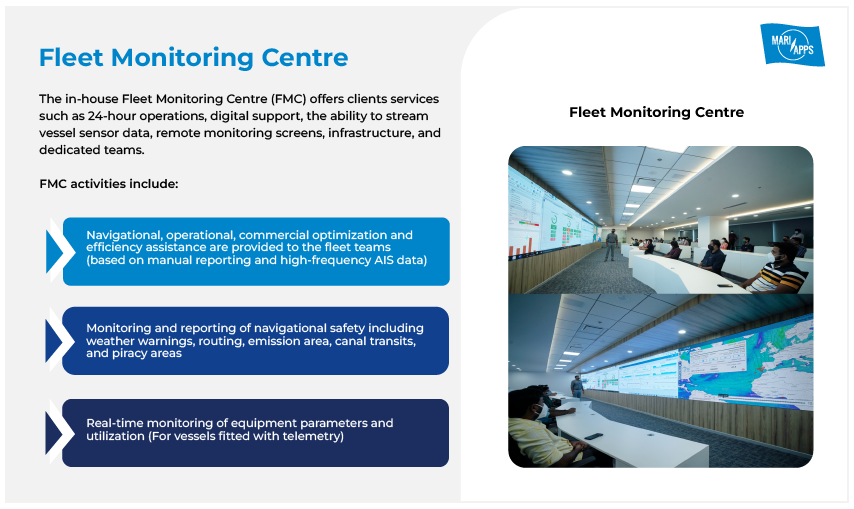
To analyze vessel performance and give fleet operators input on how to enhance vessel performance, MariApps has built its Fleet Monitoring Centre (FMC). Seafarers may effectively and closely monitor key performance criteria through tools and dashboards using smartOps.
MariApps’ Fleet Monitoring Center makes it possible to conduct effective evaluations in the interest of maintaining the objectives to achieve greener shipping. By utilizing data collected at the Fleet Monitoring Centre, vessel operators can actively control structural flaws and anomalies at an early stage, reducing hazards and avoiding more expensive repairs. Decarbonization and the goal of decreasing all CII ratings are both supported by FMC’s data analytics.
Environmental Performance Monitoring
smartOps is your tool to assess environmental trends and conditions and produce data for reporting. Indices can assist in decision-making and the monitoring of a route’s environmental performance, as well as evaluate and track the environmental performance of vessels.
Environmental monitoring is becoming more and more crucial as the shipping industry strives to improve energy efficiency. Only based on parameters provided by environmental monitoring, can the efficacy of sustainability be objectively evaluated.
